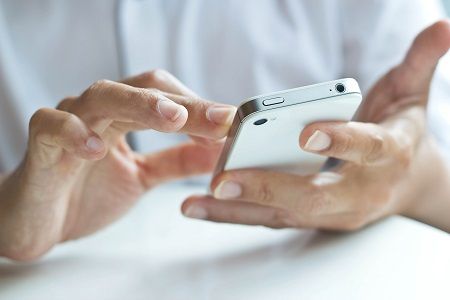Article
FDA Launches App Competition to Combat Opioid Overdoses
Author(s):
Calling all computer programmers, public health advocates, clinical researchers, entrepreneurs, and innovators from various specialties!

Calling all computer programmers, public health advocates, clinical researchers, entrepreneurs, and innovators from various specialties! The US Food and Drug Administration (FDA) has launched the 2016 Naloxone App Competition as an innovative strategy to fight opioid overdose.
Opioid abuse remains a growing problem in the United States. Naloxone (Evzio) is used to treat narcotic overdoses in emergency situations. The FDA has taken steps to combat these scenarios, such as encouraging the development of abuse-deterrent opioids and providing opioid abuse screening questions for clinicians. Next up in the campaign is creating a mobile phone application.
“Mobile phone applications have been developed to educated laypersons on how to recognize an overdose and administer naloxone, and to connect bystanders with individuals in need of other medical services, such as CPR. To date, however, no application is available to connect carriers of naloxone with nearby opioid overdose victims,” Peter Lurie, MD, MPH, associate commissioner for public health strategy and analysis at the FDA, said in a news release.
The whole purpose behind the app idea is that it can connect opioid users experiencing an overdose with carriers of naloxone near them. This can increase timely administration to reverse the overdose. The National Institute on Drug Abuse (NIDA) and the Substance Abuse and Mental Health Services Administration (SAMHSA) is supporting the FDA with the competition.
The number of deaths due to opioid overdoses — including drugs such as oxycodone, hydrocodone, and morphine, as well as illicit opioids like heroin – have more than tripled since 1999. The FDA announcement says that many of these deaths could have been avoided if naloxone was administered immediately – which is why this competition was created.
“With a dramatic increase in the number of opioid overdose deaths in the US, there’s a vital need to harness the power of new technologies to quickly and effectively link individuals experiencing an overdose — or a bystander such as a friend or family member – with someone who carries and can administer the life-saving medication,” said FDA Commissioner Robert M. Califf, MD.
Related Coverage:
Acute Low Back Pain Does Not Call for Opioids
Not All Doctors Are on Board with New CDC Opioid Guidelines
Revised FDA-Recommended Questions for Potential Opioid Abuse Provide Clearer Outcomes





